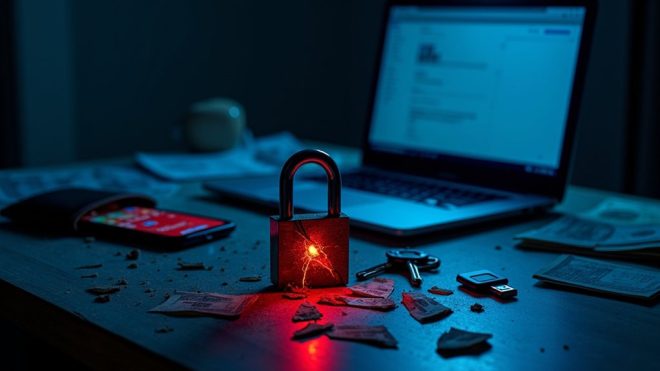Gmail’s vulnerable password security now threatens 2.5 billion users as AI-powered attacks surge in 2024. Modern cybercriminals deploy sophisticated tactics including deepfakes, quantum-resistant algorithms, and social engineering to breach accounts that serve as digital command centers for banking and business operations. With nearly half of phishing attempts utilizing artificial intelligence, traditional password protection falls short against evolving threats that can silently extract data for months. Understanding today’s security environment reveals why basic passwords no longer suffice.

Even though most users take their Gmail security for granted, cybersecurity experts warn that neglecting password protection now carries unprecedented risks in 2024. Recent data breaches have exposed 2.5 billion Gmail users to sophisticated attacks, as AI-powered threats have altered the digital security environment faster than most can adapt. Think your basic password is enough? Think again.
The stakes have never been higher, as Gmail accounts have evolved into digital command centres controlling everything from banking to business operations. When cybercriminals breach a Gmail account, they’re not just accessing emails – they’re potentially gaining keys to an entire digital kingdom. With Google’s interconnected services, a single compromised password can cascade into unauthorised access across Google Pay, Drive documents, and Chrome’s stored credentials faster than you can say “password123.” Experts emphasize that quantum computing threats could soon render current encryption methods obsolete. Attackers are now using social engineering tactics to trick employees into approving malicious applications, as demonstrated in the June 2025 breach.
AI has transformed the threat environment, making attacks more persuasive and harder to detect than ever before. Nearly half of all phishing attempts now leverage artificial intelligence to create eerily convincing emails that could fool even tech-savvy users. These aren’t your grandmother’s Nigerian prince scams – they’re sophisticated operations that analyse communication patterns and deploy deepfake audio and video to impersonate trusted contacts.
The financial implications are staggering. Cybercriminals exploit compromised Gmail accounts for identity theft, unauthorised financial transactions, and business email compromise schemes that can drain accounts in minutes. For business users, the stakes extend beyond monetary losses to include regulatory compliance violations and potential operational shutdowns. It’s like leaving your house keys under the doormat while posting your holiday photos on social media – you’re practically inviting trouble.
Modern malware has additionally evolved to exploit weak Gmail security. AI-powered malicious code can now adapt and conceal itself, slipping past traditional antivirus defenses like a digital chameleon. Once installed, these threats can establish persistent backdoors, enabling continuous data extraction while remaining undetected for months.
The solution isn’t complex, but it requires immediate action. Strong, unique passwords combined with two-factor authentication form the foundation of effective Gmail security. Regular password updates and vigilant monitoring of account activity are no longer optional – they’re crucial survival tools in today’s threat environment. Users who continue to rely on weak or recycled passwords might as well hand their digital lives to cybercriminals on a silver platter.
As we navigate deeper into 2024, the message is clear: your Gmail password isn’t just protecting your emails – it’s safeguarding your digital identity, finances, and potentially your livelihood. In an era where AI-powered threats evolve daily and data breaches make headlines weekly, treating password security as an afterthought isn’t just risky – it’s potentially catastrophic.
Final Thoughts
Securing your Gmail password is essential for protecting sensitive information, such as banking details and personal photos. With the rise of cyber threats, a compromised account can lead to significant issues across all linked services. Updating your passwords and enabling two-factor authentication can save you from long-term recovery challenges.
At Get Computer Repair, our team is ready to assist you with enhancing your password security and implementing best practices to protect your online accounts. Don’t wait until it’s too late—click on our contact us page to get in touch and secure your digital life today!

